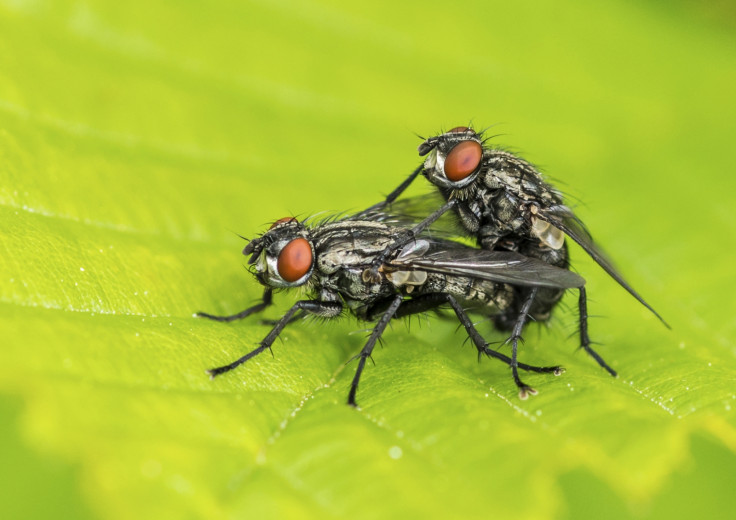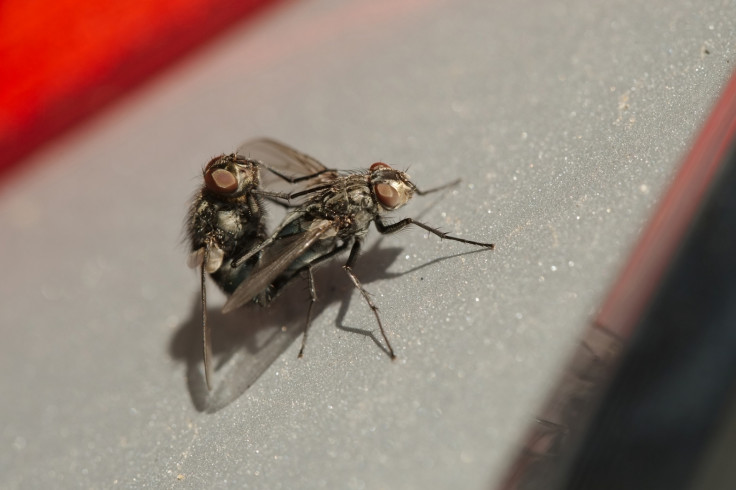We're not the only ones enjoying sex – flies could be having a great time too
Circuit for copulation is separate from the one for ejaculation, suggesting that male flies might enjoy sex.

A circuit in the brain of male vinegar flies has been identified as the coordinator of their complex mating ritual and is distinct from the circuit responsible for ejaculation, a new study finds.
The doublesex gene is responsible for differences in behaviour and anatomy between males and females in many species. In males it is active in about 650 neurons that control distinct steps in the courtship ritual.
Hardwired for courtship
In male flies, this ritual is coordinated by a circuit of nerve cells expressing the doublesex gene located in the equivalent of the animal's spinal cord, according to the study published in the journal eLife.
"Male [vinegar] flies court females with a series of hardwired or genetically programmed behaviours, and failure during any part of the process may prevent reproduction," says co-author of the paper Stephen Goodwin of the University of Oxford.
"We found the exact motor neurons that control the male penis and enable sex to take place, in addition to a second group of inhibitory neurons that oppose the motor neurons and are involved in the uncoupling following sex," says study couathor Hania Pavlou.
Pavlou and her colleagues interrupted these neurons to stop males from being able to mate. "The mechanosensory neurons on the genitals feedback and potentially coordinate the activity of the other neurons to generate the correct balance of excitation and inhibition that is needed for copulation."
Fun times
This circuit for copulation was distinct from the one for the transfer of sperm, which means that the sensation of sex is separated from reproductive function, the authors say. Fly sex lasts about 20 minutes, but the ejaculation process finishes after about 9 minutes.

This separation suggests that flies could be enjoying sex, as Joel Levine of the University of Toronto Mississauga, Canada, writes in eLife. "[The study] also hints that copulation should be considered behaviour in its own right, and possibly one with hedonic value (in other words, one that male vinegar flies might 'enjoy')."
Levine says that the research raises several further questions. "Does an equivalent circuit control the genitalia of female flies during copulation?" he asks. "And how do male and female flies coordinate their behaviour to increase the chances of successful reproduction?"
© Copyright IBTimes 2025. All rights reserved.






















